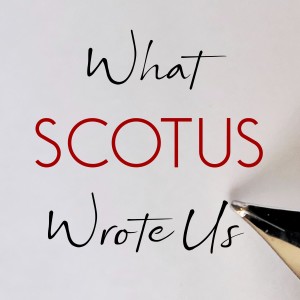
Audio of the 1972 opinion of the Court in Eisendtadt v. Baird (1972)
After his lecture on birth control and over-population at Boston University, William Baird gave contraceptive foam to an unmarried woman. But, it was a felony to give contraceptives to unmarried people in Massachusetts in 1967, so Baird was charged with the felony crime of distributing contraceptives to unmarried men or women.
The question before the Court in this case was whether the right to privacy was violated, as in Griswold v. Connecticut. In the end, the Court held that the Massachusetts law was indeed unconstitutional, but not on privacy grounds. Instead, the law's distinction between single and married recipients did not pass the rational basis test of the Equal Protection Clause of the Fourteenth Amendment.
Music by Epidemic Sound
More Episodes
 2024-05-02
2024-05-02
 2024-04-25
2024-04-25
 2024-02-28
2024-02-28
Create your
podcast in
minutes
- Full-featured podcast site
- Unlimited storage and bandwidth
- Comprehensive podcast stats
- Distribute to Apple Podcasts, Spotify, and more
- Make money with your podcast
It is Free
- Privacy Policy
- Cookie Policy
- Terms of Use
- Consent Preferences
- Copyright © 2015-2024 Podbean.com





